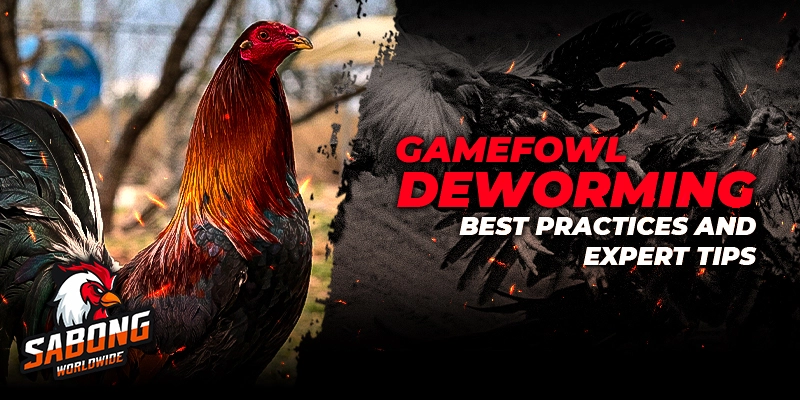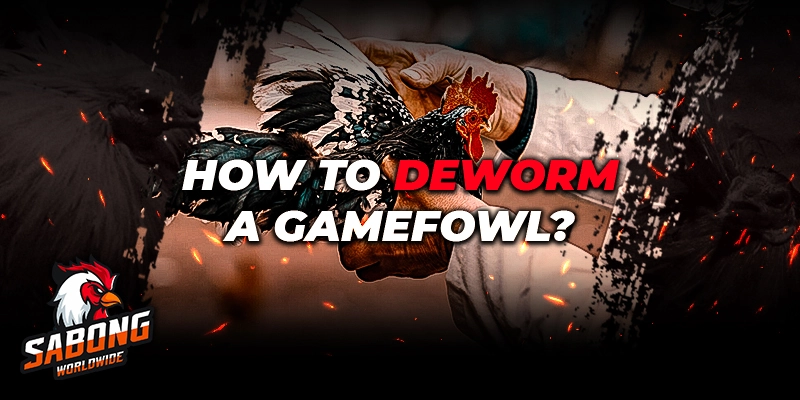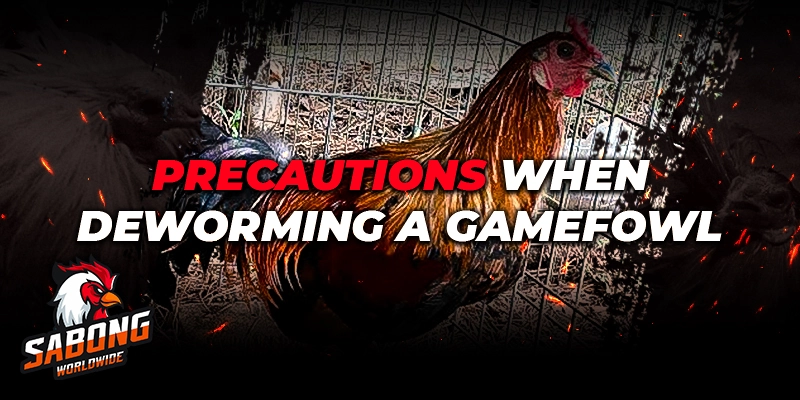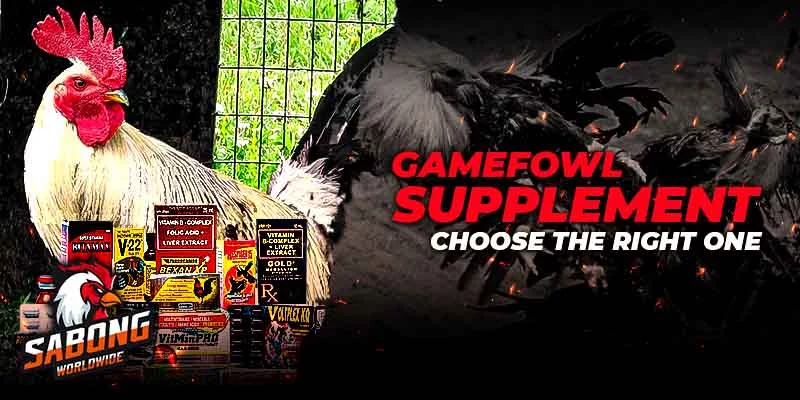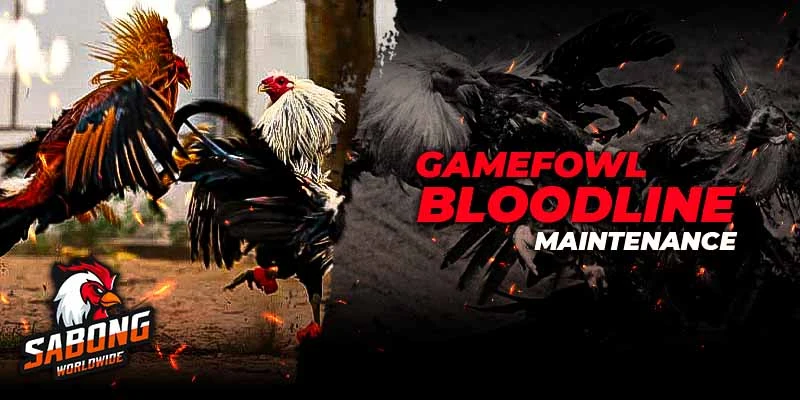Deworming is an essential aspect of gamefowl health maintenance. Internal parasites, such as roundworms and tapeworms, can compromise a bird’s immune system, nutrient absorption, and overall well-being. Proper deworming involves selecting a suitable dewormer that targets the prevalent parasites in your region.
It’s crucial to adhere to recommended dosage guidelines and maintain a regular deworming schedule. Consulting with a veterinarian will ensure you are using the most effective products and strategies for your specific flock’s needs, promoting optimal health and performance of your gamefowl.
Considerations of Gamefowl Dewormer
Internal parasites can seriously harm gamefowl health and performance. To protect your birds, understand common parasites, choose the right dewormer, and always follow best practices. Consulting a veterinarian is crucial for the most effective parasite control strategies. Here are the considerations:
Target Parasites
- Roundworms: Several species affect gamefowl (Ascaridia, Heterakis, Capillaria). Ascaridia is particularly damaging, causing weight loss, intestinal inflammation, and even death in young birds.
- Tapeworms: Different tapeworm species can infect gamefowl. They compete for nutrients in the gut, leading to malnutrition and stunted growth.
- Cecal Worms: These can cause inflammation of the ceca (part of the intestine), leading to severe blackhead disease.
Spectrum of Activity
- Broad-spectrum dewormers: These are generally preferred for routine maintenance as they cover the most likely parasites. They often combine multiple active ingredients.
- Specific dewormers: A veterinarian might prescribe these if your bird has a diagnosed infestation with a less common parasite type or if a specific parasite is known to be a problem in your area.
Active Ingredients
- Fenbendazole: Highly safe and effective, it belongs to the benzimidazole class of dewormers.
- Praziquantel: Specifically targets tapeworms and is often combined with other dewormers for broader coverage.
- Levamisole: Another broad-spectrum option, levamisole works by paralyzing parasites. However, some parasites are developing resistance to levamisole.
- Piperazine: An older dewormer specifically for roundworms. It’s less common due to the availability of more effective and broader-spectrum options.
Form
- Tablets: Offer precise individual dosing but can be more complicated to administer to some birds.
- Liquids: Good for treating a whole flock at once but may lead to some birds getting an underdose.
- Pastes: Easy to use, but dosage accuracy can be slightly more complex than tablets.
- Injectables: Usually less common for routine deworming but may be prescribed in some instances (e.g., Ivermectin).
Veterinary Guidance
- Consultation: Your veterinarian knows regional parasite challenges and can advise on best practices for your area. They can also diagnose specific infestations.
- Dosage: Accurate weight-based dosing is vital. Too low a dose is ineffective; too high can be toxic.
Responsible gamefowl care means proactive deworming. You can safeguard your birds’ health by knowing the symptoms, selecting appropriate treatments, and following expert advice. Remember, your veterinarian is your best ally for ensuring your flock’s long-term well-being.
How to Deworm a Gamefowl
Deworming is essential for maintaining gamefowl health. Follow these steps to deworm your birds and protect them from internal parasites successfully:
- Choose the right dewormer: Select a dewormer specifically formulated for gamefowl and effective against the types of worms present in your birds. Hammer Gamefowl Dewormer and Total Gamefowl DeWormer Tablets are two examples of dewormers commonly used for gamefowl.
- Read the instructions: Carefully read the instructions on the dewormer packaging to determine the correct dosage and frequency of administration based on the weight and age of your gamefowl.
- Prepare the dewormer: Depending on the formulation of the dewormer, you may need to dissolve the tablets in water or mix them with feed. Follow the instructions on the packaging to prepare the dewormer correctly.
- Administer the dewormer: If it is in tablet form, mix it with the gamefowl’s feed or administer it directly to the bird’s mouth. If the dewormer is in liquid form, you can add it to the bird’s water source.
- Monitor the gamefowl: After deworming, monitor the gamefowl for any signs of adverse reactions to the dewormer. Contact a veterinarian or poultry expert for advice if you notice any unusual behavior or symptoms.
- Repeat the deworming process: Depending on the type of worms present and the severity of the infestation, you may need to repeat the deworming process several times to ensure that all the worms have been eliminated.
It is important to note that deworming should be part of a comprehensive parasite control program that includes regular fecal examinations, proper sanitation, and biosecurity measures. Always consult a veterinarian or poultry expert before administering any dewormer to gamefowl.
Precautions when Deworming a Gamefowl
When deworming gamefowl, it is essential to take certain precautions to ensure the process is effective and safe for the birds. Based on the provided sources, here are the precautions to take when deworming gamefowl:
- Dosage Accuracy: Ensure that you accurately measure and administer the correct dewormer dosage according to the instructions provided on the packaging. Overdosing or underdosing can be harmful to the gamefowl.
- Proper Administration: Administer the dewormer correctly, whether in tablet form mixed with feed or water. Ensure each bird receives the appropriate amount of the dewormer to treat and prevent parasitic infestations effectively.
- Avoid Mixing Dewormers: Do not mix different dewormers unless expressly advised by a veterinarian. Mixing dewormers can lead to adverse reactions or reduced effectiveness in treating parasites.
- Monitor for Adverse Reactions: Keep a close eye on the gamefowl after deworming for any signs of adverse reactions, such as lethargy, loss of appetite, or unusual behavior. If any negative symptoms occur, seek veterinary advice promptly.
- Prevent Reinfestation: Take measures to prevent reinfestation by maintaining good hygiene in the coop, regularly cleaning and disinfecting the living area, and practicing proper biosecurity measures.
- Consult a Veterinarian: If you need clarification on the deworming process or if your gamefowl has specific health conditions, consult a veterinarian or poultry expert for guidance on the most suitable deworming protocol.
By following these precautions, gamefowl owners can ensure that the deworming process is carried out effectively and safely, promoting the health and well-being of their birds.
Conclusion
Deworming is a vital part of responsible gamefowl care. By choosing the right products, following dosage instructions carefully, and consulting your veterinarian, you can effectively protect your birds from the harmful effects of parasites. Maintaining good hygiene practices alongside regular deworming will help ensure a healthy and thriving flock.
Visit us at Sabongworldwide.vip for more guides and tips!

